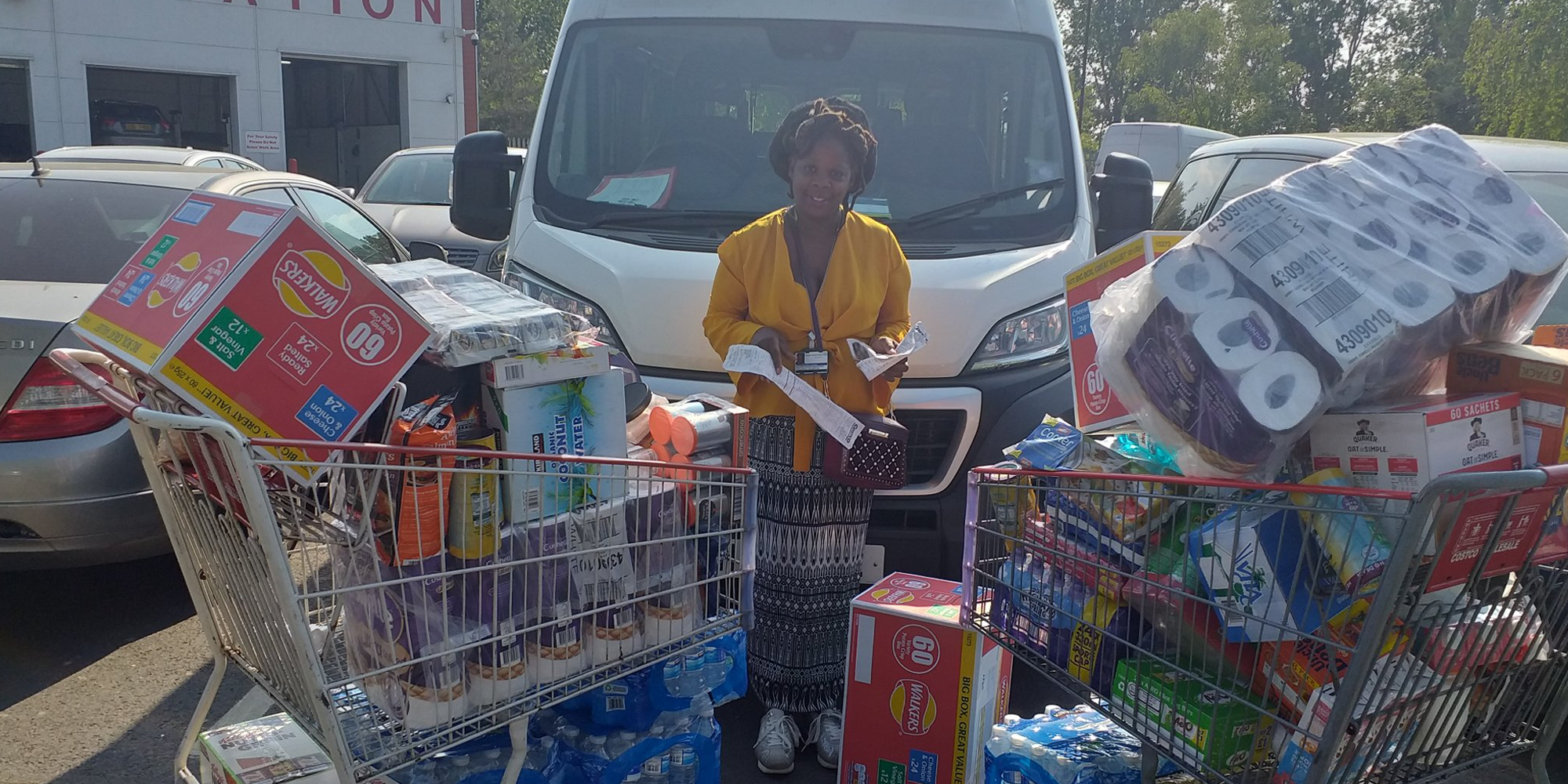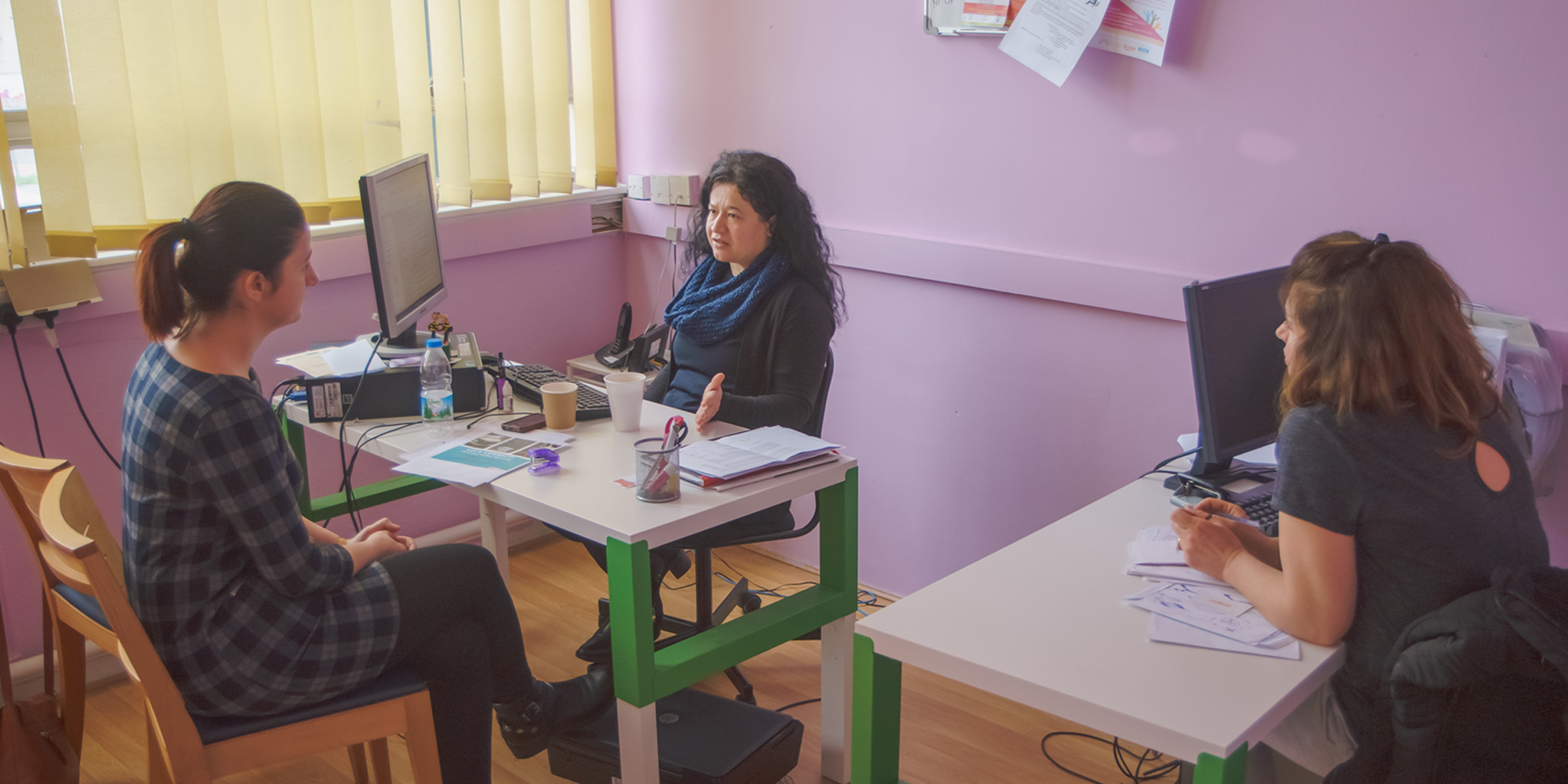
News reports and feedback from our grantees and violence against women and girls (VAWG) sector partners have indicated how domestic violence and domestic abuse is rising in the face of the coronavirus pandemic. Charities are responding despite unprecedented challenges, particularly funding. These challenges are more acute in BAME communities where analysis from the BBC suggests that people from BAME backgrounds are currently disproportionately affected by the impact of the pandemic.
Given this evidence and as part of our emergency response focus, LCF is prioritising funding to the VAWG and BAME communities.
Our focus, aided by support from our donors has meant that we are able to provide a range of funding options to charitable organisations in London. They are able to apply for urgent funding via the London Community Response portal, an easy access point with 40+ funders sitting behind it. All funds raised from the National Emergencies Trust appeal and through our London Communities Coronavirus Appeal are being distributed through this portal.
Recently, we spoke with one of our recent grantees, Sistah Space, who received £4,300 from the London Communities Coronavirus Appeal via the London Community Response Fund to meet increased demand for food, hygiene and toiletries to support domestic violence (DV) victims. They tell us how the organisation, who support African and Caribbean heritage women and girls affected by domestic and sexual abuse, has adapted their services in the face of the pandemic, the challenges they face and their experience of applying for funding.
How has your organisation been affected since the beginning of the lockdown?
Our organisation has been greatly affected since the lockdown. Already existing on limited funds and just one paid worker, we felt overwhelmed with the sudden increase in our workload and the fact that we could not operate from our offices.
Coupled with the fact that we are operating in an environment that really does not understand the fear that African and Caribbean victims feel since the rash of deportations and the Windrush scandal. We have found that there is a reluctance to report symptoms of Covid19 as well as domestic and sexual abuse. As a specialist charity with a remit for African and Caribbean heritage women and girls, the rate and volume of the increase has put a real strain on our organisation.
What are the biggest challenges you’ve faced so far?
The biggest challenge so far, apart from managing in an unseen pandemic, has been sourcing funding to cope with this pandemic in the way that we as specialists know, is what is needed and wanted. Most funding applications really do not understand how difficult it is to explain what we require in a way that a panel/individual who has no real knowledge of the barriers faced by minorities would even begin to understand. Therefore, to negotiate an application form that leaves limited space for explanation has in the past prevented us from qualifying for much needed support.
The increase for support for our specialist expertise has been very overwhelming, and that is without us even advertising our services too widely. As we do not subscribe to the title of BAME, which we find lumps all minorities in one group, not allowing for the cultural differences and needs each require, compromises us quite substantially.
What has receiving funding through the London Community Response portal allowed your organisation to do?
The LCF has allowed us to operate in a way that is most beneficial to our client base. This is because the way the application is designed has left scope for organisations to really explain their individual needs. Most essentially, the LCF has trusted organisations to outline what their specific needs are in relation to the Covid19 crisis by asking relevant questions in a straight forward manner. Plenty of information and guidance has been invaluable.
We are able to distinguish between what the mainstream deems is essential and what our service users require. An example of this is that we were able to purchase foods and hygiene and personal items that are specific to black skin and hair types. To explain this to funders would have taken up too much time and effort, but would still not have been understood. LCF has permitted organisations to use their expertise to help in these unprecedented times. It has lifted morale among our service users who finally feel part of the community that they have felt excluded from.
Our clients were delightfully surprised and extremely grateful when we purchased specific African and Caribbean foods. We also have a high percentage of vegetarian and vegan service users and they were able to give us a list of their dietary requirements. The Shea butter, black soap and other products were purchased wholesale and all of our service users received their 'essential' goods.
Thank you to everyone who has donated to the London Communities Coronavirus Appeal.

